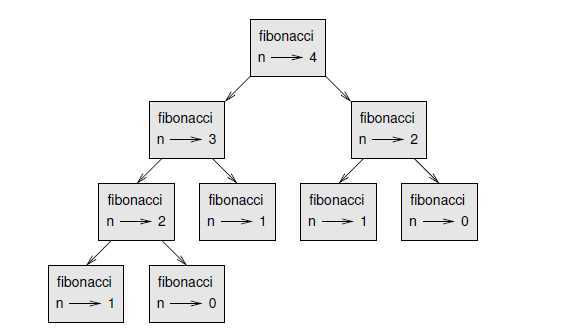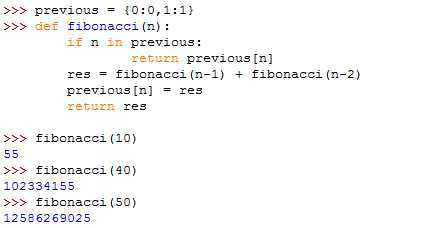标签:style blog http 2014 for io
If you played with the Fibonacci function, you might have noticed that the bigger the argument you provide, the longer the function takes to run. Furthermore, the run time increases very quickly.
To understand why, consider this call graph for Fibonacci with n = 4:

A call graph shows a set function frames, with lines connecting each frame to the frames of the functions it calls. At the top of the graph, Fibonacci with n=4 calls Fibonacci with n=3 and n=2. In turn, Fibonacci with n=3 calls Fibonacci with n=2 and n=1. And so on. Count how many times Fibonacci(0) and Fibonacci(1) are called. This is an inefficient solution to the problem, and it gets worse as the argument gets bigger. One solution is to keep track of values that have already been computed by sorting them in a dictionary. A previously computed value that is stored for later use is called a hint. Here is an implementation of Fibonacci using hints:

from Thinking in Python
标签:style blog http 2014 for io
原文地址:http://www.cnblogs.com/ryansunyu/p/3845415.html